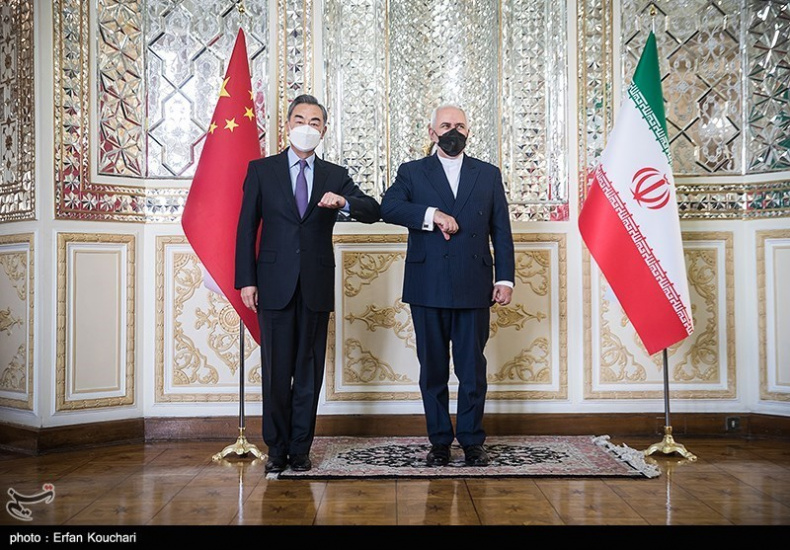US Policy After the Iran-China Deal

The historic 25-year agreement between Iran and China marks a brave new chapter in their relations by introducing a new strategic depth as well as multiple layers of connectivity along economic, trade, energy, transportation, political, and security lines. Conceived by China as a stepping stone in its ambitious Belt and Road Initiative (BRI) as well as its energy security strategy, this agreement has been widely interpreted in the world media as a definite sign of China’s growing influence in the Middle East, coinciding with a diminishing role and influence of the United States.
On Iran’s part, the landmark agreement is significant for several reasons. First, it signifies the normalization of Iran’s trade relations, irrespective of the US’ “maximum pressure strategy” which has continued unabated under the Biden administration. China’s willingness to defy the American will and dictates on Iran will likely have ripple effects on other nations following China’s footsteps, thus delivering a major blow to the American architecture of a robust sanctions regime on Iran, which has had crippling effects on the Iranian economy.
Second, contrary to some misinterpretations, this agreement does not preclude future deals with some Western nations and, in fact, promotes a balancing act on Tehran’s part, using the agreement as a point of reference in future talks with the Western powers. In other words, rather than being a ‘zero-sum’ game with respect to the Western interests, this agreement can pave the way to future joint projects whereby, for example in the energy sector, certain European energy companies can enter into joint ventures with the Chinese companies making investments in Iran’s oil and gas projects.
Third, given China’s heavy energy dependence on energy imports from the Persian Gulf region, the agreement can potentially translate into a greater Chinese willingness to act as mediator between Iran and Saudi Arabia and other GCC ([Persian] Gulf Cooperation Council) members that are currently at odds with Iran over regional security issues. A net result of this agreement may indeed be a major boon for regional peace and tranquility.
Fourth, Iran is planning to join the Eurasian Economic Union and this agreement will likely induce Russia and other members of the Union to expedite the process, whereby the Union’s free trade zone initiative can benefit from the windfall of the Iran-China agreement, that also calls for a free trade zone. Complementing each other, such trade initiatives on Iran are bound to enhance Iran’s regional trade and definitely serve Iran’s long-term plans to enhance its regional portfolio as a trade hub for the Eurasian landmass, particularly for the landlocked Central Asian states.
Fifth, this agreement will also likely spur India to accelerate its commitment and investment in Chabahar, otherwise India will lose the initiative to China, an unwanted prospect from the prism of India’s regional interests.
Concerning the latter, US, which even under President Trump made exemptions for India’s investment in Chabahar, has the option of either becoming a passive bystander to China’s growing influence due partly to the imprudent sanctions-based approach toward Iran, or make the necessary adjustments, whereby commercial diplomacy with Iran will be prioritized and the current restrictions gradually lifted in favor a brand new approach in tune with the realities on the ground, i.e., the fact that the US sanctions regime is simply not paying off and isolating the US instead.
Unfortunately, the Biden administration has not yet shown the necessary willpower to make a decisive break from the failed Trumpian policies on Iran. As a result, feeble talks of US return to Iran nuclear deal have been combined with the actual coercive policies of ‘business as usual,’ resulting in continuity rather than change in US policy toward Iran. Hopefully, the long-term Iran-China agreement can serve as a timely wake up call to Washington that the time to make a decisive policy change toward Iran is long overdue.

